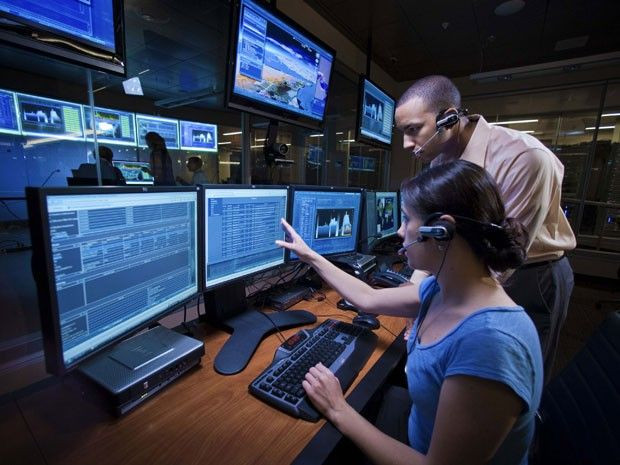Enhanced Security Software Uses Social Media, GPS To Monitor People

Raytheon Co. (NYSE:RTN), the No. 5 defense contractor, has devised powerful new software that tracks individuals via social media posts and GPS that uses analytics to aid governments and security professionals.
Besides monitoring mobile phone calls, the software can track posts on Facebook (NASDAQ:FB), the Foursquare mobile app and Twitter and then link to CCTV systems to track individuals to places they frequent.
Raytheon’s development of software dubbed Riot, for rapid information overlay technology, was first reported by the UK Guardian, but is similar to what other companies in the security software sector, such as Verint Systems (NASDAQ:VRNT) and Safran SA (EPA:SAF) have also worked on to deal with homeland security.
A representative for Raytheon, based in Waltham, Mass., said the company’s intelligence and information systems unit had devised Riot as a “big data analytics system design” with partners including national laboratories and commercial partners “to help turn massive amounts of data into usable information.”
“This kind of software brings security tracking to a new level,” said C. Warren Axelrod, a security specialist who recalled how Wall Street banks turned to recording all trader phone calls using software from two Israeli companies, Nice Systems Inc. (NASDAQ:NICE) and Comverse Technologies Inc. (NASDAQ:CMVT), which spun off Verint and last week was itself merged into it.
“The firms were recording the data but the key was to use analytics to pinpoint a specific transaction,” Axelrod said. Adding social media, GPS and CCTV tracking “raises the whole level of surveillance,” he added.
A Raytheon demonstration video posted by an investigator showed how Riot could track an employee’s whereabouts by showing him at a baseball stadium, documenting Foursquare posts documenting his visits to his gym and other moves. With analysis, it could be used to pinpoint his future whereabouts based on past behavior.
In the video, the investigator said it might be easier to find the employee at his gym daily around 6 a.m.
Jay Stanley, a senior investigator for the American Civil Liberties Union, raised concerns about Riot, warning that it could lead to extensive abuses. "The government has no business snooping around in social networks," he said, unless there's clear suspicion about an individual.
Software like Riot "could lead to incorrect inferences about individuals and have a chilling effect on privacy," the ACLU official said. Meanwhile, he worried that most users of social media have litle or no idea that what they believe is "private" postings are actually published for all, especially users of "crawler" software like Riot.
To counter that, the ACLU has a “Don’t spy on me” campaign that monitors cybersecurity and includes warnings that tracking software can use “sensitive data to compile vast dossiers about innocent people.”
The ACLU warns that personal data “sits indefinitely in government databases and the names of many innocent Americans end up on bloated and inaccurate watch lists” that affect airline flights, passports and even bank accounts.
The civil liberties union successfully sued the administration of President George W. Bush to stop the implementation of the so-called Total Information Awareness (TIA) program in 2003. That plan looks very similar to Raytheon's Riot software, Stanley said.
Raytheon, in turn, said Riot is only a “proof of concept” product that hasn’t been commercialized. It has been scheduled to be shown at a conference in April for classified innovations under the category of “big data --- analytics, algorithms.”
Shares of Raytheon rose 39 cents to $54.55 in Monday trading.
© Copyright IBTimes 2024. All rights reserved.






















